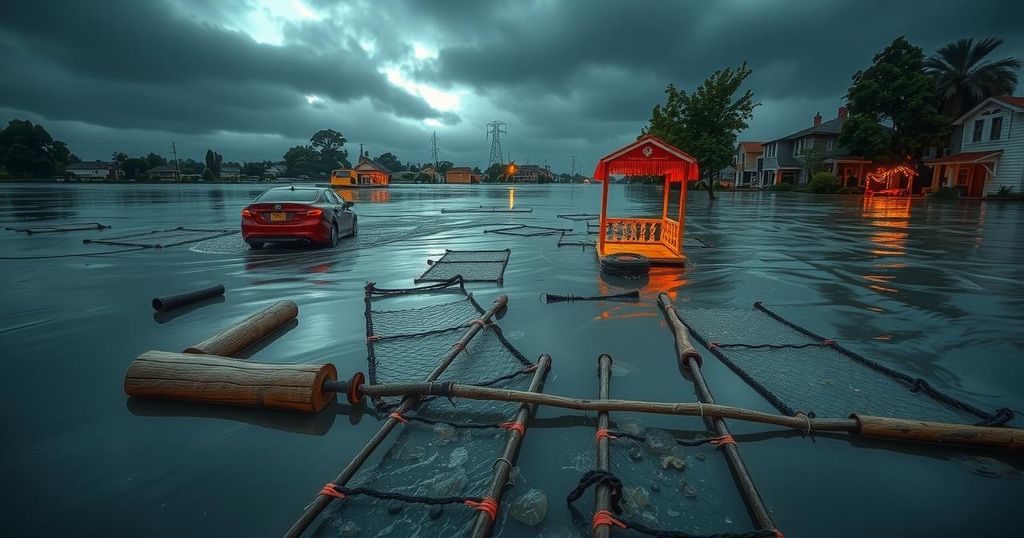A recent study by the World Weather Attribution network indicates that human-induced climate change has worsened flooding in Africa, resulting in numerous fatalities and displacing millions. The research particularly focuses on how the floods in Sudan were intensified by climate change, forecasting that without intervention, such extreme weather could become commonplace as global temperatures rise.
Recent findings indicate that climate change, driven by human activity, has contributed significantly to the severity of floods in Africa, resulting in hundreds of fatalities and the displacement of millions in countries including Cameroon, Chad, Niger, Nigeria, and Sudan this year. A comprehensive analysis conducted by the World Weather Attribution (WWA) scientific network has revealed that the unprecedented rainy season has sparked a humanitarian crisis across vast regions of the Sahel, which borders the Sahara Desert. The study specifically highlights how climate change intensified flooding in Sudan, with the researchers estimating that the torrential rains experienced in this region this year were enhanced by 5 to 20 percent due to rising temperatures associated with fossil fuel usage. Clair Barnes, from the Centre for Environmental Policy at Imperial College London, cautioned that if fossil fuel consumption continues, such extreme weather patterns could become an annual occurrence with global temperatures potentially rising by two degrees Celsius above pre-industrial levels. This phenomenon of heavy downpours and storms is attributed to increased heat retention in the atmosphere and oceans, leading to more frequent and intense weather events. Evidence from the study suggested a direct correlation between extreme rainfall events and global warming, with significant implications for vulnerable nations. The researchers found that, at the current warming level of 1.3 degrees Celsius, intense rainfall spells in Sudan have become considerably more severe, likely occurring every three years on average. According to Izidine Pinto of the Royal Netherlands Meteorological Institute, the results from the study are alarming, indicating that the likelihood of extreme floods is increasing with every increment of global warming. He emphasized the necessity for the upcoming United Nations COP29 climate summit to promote a swift transition away from fossil fuels. Furthermore, Joyce Kimutai from Imperial’s Centre for Environmental Policy stressed the urgent requirement for a loss and damage fund tailored for nations adversely affected by climate change. The findings also reveal that while Africa contributes marginally to global carbon emissions, it bears the brunt of the resultant extreme weather phenomena. The researchers identified that the floods were further aggravated by local challenges, advocating for improved dam maintenance and investments in early warning systems as crucial measures to mitigate future disasters.
Climate change poses a significant threat to global weather patterns, resulting in increased droughts and floods worldwide. The Sahel region of Africa, already susceptible to harsh climatic conditions, has faced particularly dire consequences. The flooding situation has been aggravated by man’s reliance on fossil fuels, which has led to a rise in global temperatures, further intensifying weather events. The findings presented in this study emphasize the urgent need for global action to address climate change and its disproportionate effects on vulnerable populations in Africa.
The research underscores the urgent implications of climate change on extreme weather events such as floods in Africa. With hundreds of lives lost and millions displaced, the findings advocate for immediate action to transition away from fossil fuels and enhance climate resilience through improved infrastructure and policy frameworks. The need for international support and funding for affected nations has never been more critical, as Africa continues to face devastating consequences despite its minimal contribution to global carbon emissions.
Original Source: www.rfi.fr






